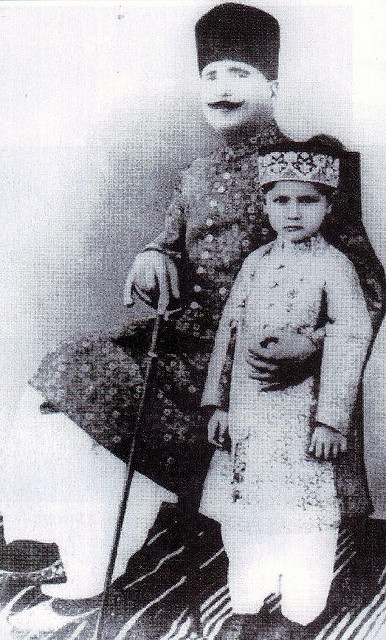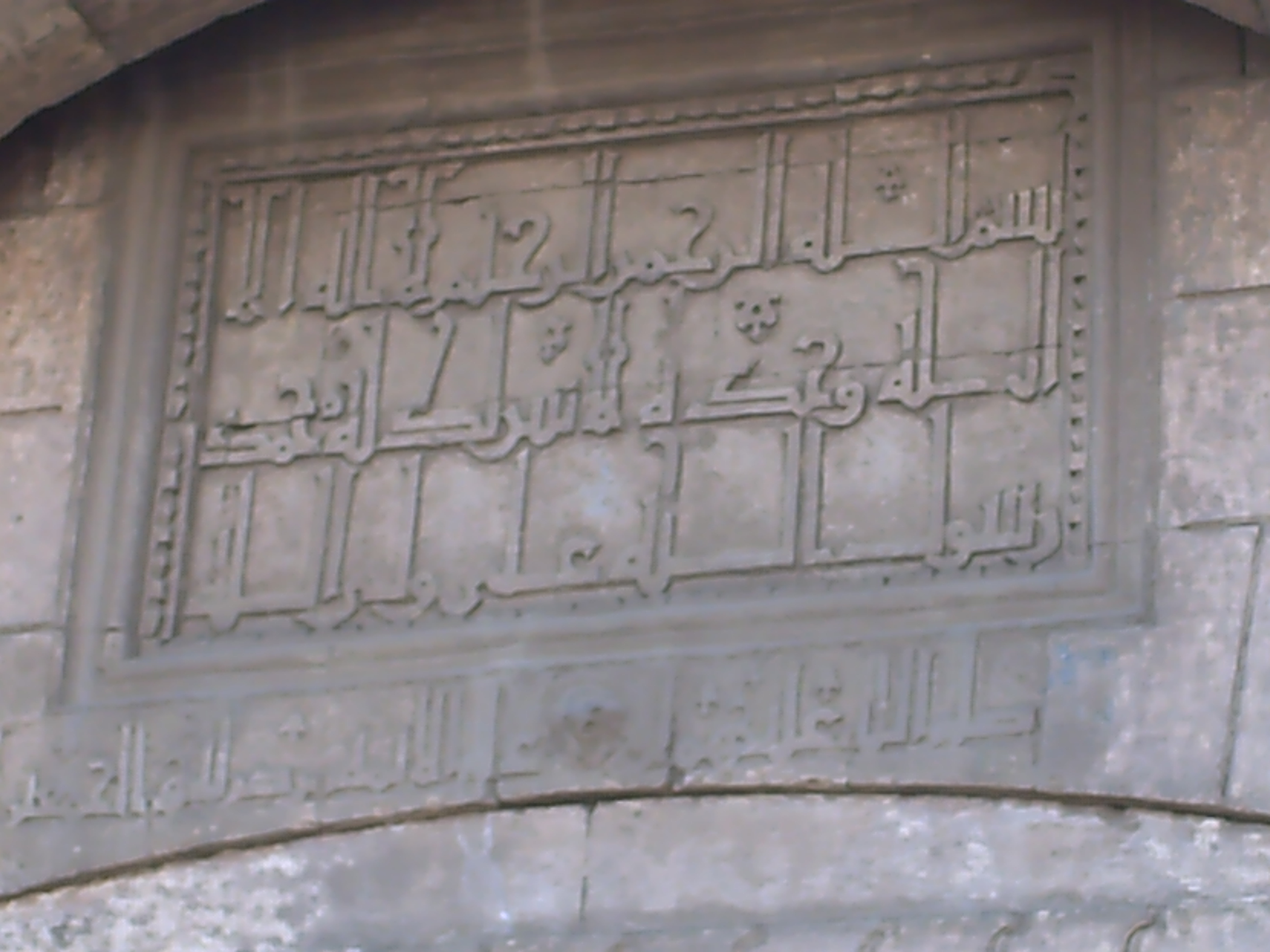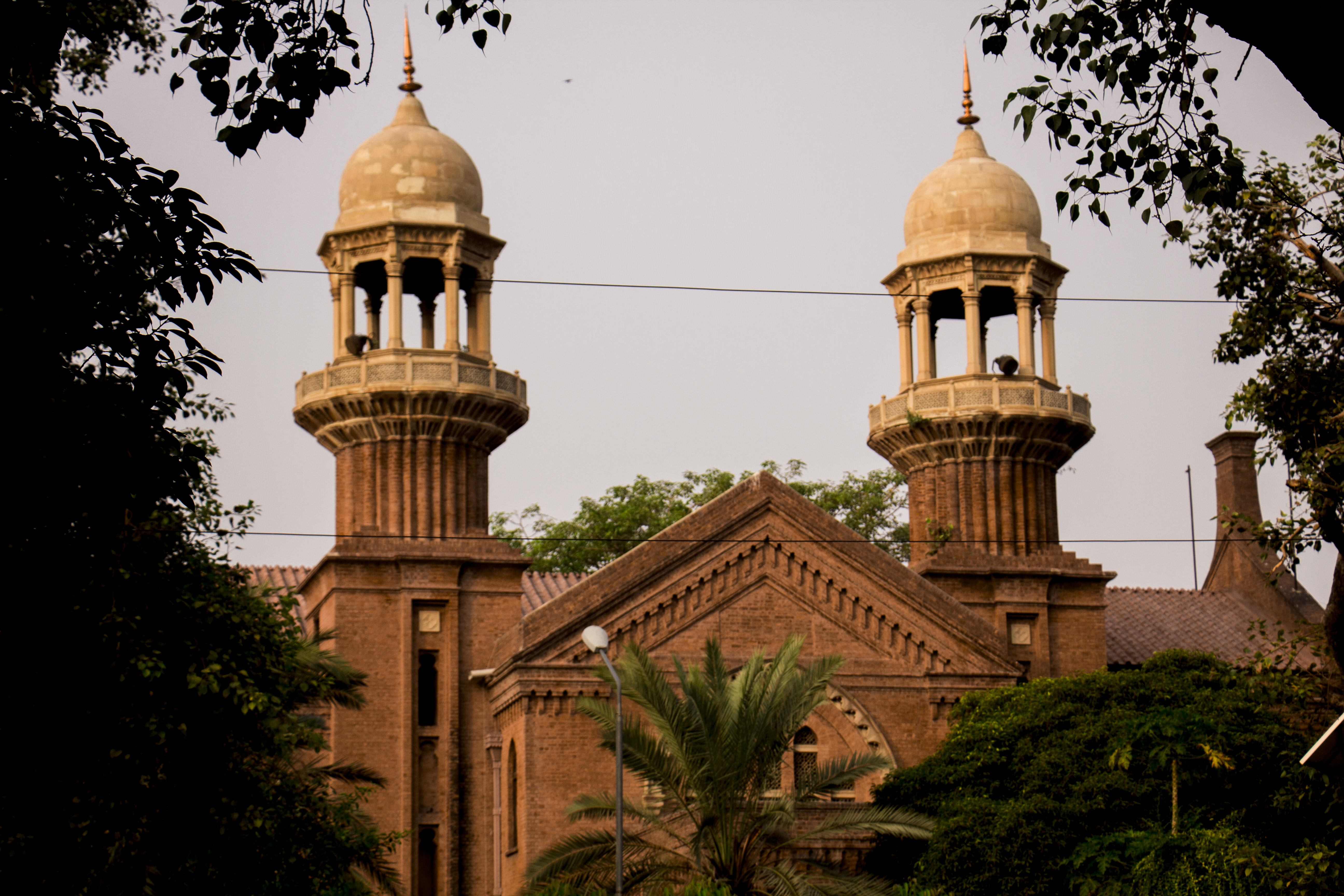|
Bal-e-Jibril
''Bal-e-Jibril'' ( ur, بال جبریل; or ''Gabriel's Wing''; published in Urdu, 1935) was a philosophical poetry book of Allama Iqbal (Muhammad Iqbal), the great poet-philosopher of the Indian subcontinent. Introduction Iqbal's first book of poetry in Urdu, ''Bang-i-Dara'' (1924), was followed by ''Bal-i-Jibril'' in 1935 and ''Zarb-i-Kalim'' in 1936. Bal-i-Jibril is the peak of Iqbal's Urdu poetry. It consists of Ghazal, ghazals, poems, quatrains, epigrams and displays the vision and intellect necessary to foster sincerity and firm belief in the heart of the ummah and turn its members into true believers. Some of the verses had been written when Iqbal visited Britain, Italy, Palestine (region), Palestine, France, Spain and Afghanistan, including one of Iqbal's best known poems ''The Mosque of Cordoba''. The work contains 15 ghazals addressed to God and 61 ghazals and 22 quatrains dealing the Id, ego and super-ego#Ego, ego, faith, love, knowledge, the intellect and Freedom ... [...More Info...] [...Related Items...] OR: [Wikipedia] [Google] [Baidu] |
Allama Iqbal
Sir Muhammad Iqbal ( ur, ; 9 November 187721 April 1938), was a South Asian Muslim writer, philosopher, Quote: "In Persian, ... he published six volumes of mainly long poems between 1915 and 1936, ... more or less complete works on philosophical themes" (p. xiii)" Scholar and politician, whose poetry in the Urdu language is considered among the greatest of the twentieth century, Quote: "In Urdu, Iqbal is allowed to have been far the greatest poet of this century, and by most critics to be the only equal of Ghalib (1797–1869). ... the Urdu poems, addressed to a real and familiar audience close at hand, have the merit of being direct, spontaneous utterances on tangible subjects. (p. xiii)" and whose vision of a cultural and political ideal for the Muslims of British Raj, British-ruled India was to animate the impulse for Pakistan. He is commonly referred to by the honorific Allama (from ). Born and raised in Sialkot, Punjab region, Punjab in an ethnic Kashmiri Muslims, Kash ... [...More Info...] [...Related Items...] OR: [Wikipedia] [Google] [Baidu] |
Persian Psalms
''Zabur-i-Ajam'' (, ''Persian Psalms'') is a philosophical poetry book, written in Persian, of Allama Iqbal, the great poet-philosopher of the Indian subcontinent. It was published in 1927. Introduction ''Zabur-i Ajam'' includes the mathnavi ''Gulshan-i Raz-i Jadid'' and ''Bandagi Nama''. There are four sections. The first two are sequences of ghazals in the classical form and the other two are single long poems. Iqbal forcefully expresses his inner convictions and urges the reader to advance himself to achieve progress and prosperity by discovering and strengthening the self. The first of the two longer poems is the ''Gulshan-i Raz-i Jadid'' (, "New Garden of Mysteries"). It alludes to the '' Gulshan-i Raz'', the treatise on Sufism written in Persian verse by Sa'd ad-Din Mahmud Shabistari. Here Iqbal poses and answers nine questions on philosophical problems such as the nature of discursive thought, of the self, and of the relation between the eternal and the temporal. The ... [...More Info...] [...Related Items...] OR: [Wikipedia] [Google] [Baidu] |
Message From The East
''Payam-i-Mashriq'' ( fa, ; or ''Message from the East''; published in Persian, 1923) is a philosophical poetry book of Allama Iqbal, the great poet-philosopher of British India. Introduction Payam-i-Mashriq is an answer to '' West-östlicher Diwan'' by Goethe, the famous German poet. History Immediately after the end of World War I, Iqbal started writing the Payam and it can be presumed that he would have thought in this respect to achieve a goal of bringing the East and the West closer to each other. It is evident from some of Iqbal's Urdu letters that he first disclosed about his book-in-preparation (i.e. Payam) to Syed Sulaiman Nadwi, a distinguished scholar and his esteemed friend, in 1919: ''"At present, I am writing a reply to the Divan of a Western poet (i.e. Goethe) and about half of it has been completed. Some poems will be in Persian and some in Urdu..... Two great German poets, Goethe and Uhland, were barristers. After practising for a short time Goethe was appoi ... [...More Info...] [...Related Items...] OR: [Wikipedia] [Google] [Baidu] |
Javid Nama
The ''Javid Nama'' ( fa, ), or ''Book of Eternity'', is a Persian literature, Persian book of poetry written by Muhammad Iqbal and published in 1932 in poetry, 1932. It is considered to be one of the masterpieces of Iqbal. It is inspired by Dante Alighieri's ''Divine Comedy'', and just as Dante's guide was Virgil, Iqbal is guided by Maulana Rumi. Both of them visit different spheres in the heavens coming across different people. Iqbal uses the pseudonym ''Zinda Rud'' for himself in this book. It was translated into English by Arthur John Arberry and into German as ''Dschavidnma: Das Buch der Ewigkeit'' by Annemarie Schimmel and in Italian as ''Il poema Celeste'' by Alessandro Bausani. Schimmel also prepared a Turkish translation, ''Cevidname'', based on her German edition. Introduction "Man, in this world of seven hues, lute-like is ever afire with lamentation; yearning for a kindred spirit burns him inwardly", Iqbal opens. Iqbal, Muhammad (tr. Arberry) (1932). Javidnama'. ... [...More Info...] [...Related Items...] OR: [Wikipedia] [Google] [Baidu] |
What Should Then Be Done O People Of The East
''What Should Then Be Done O People of the East; Traveller'' ( fa, پس چہ باءد کرد اے اقوامِ شرق مع مسافر; ) was a philosophical poetry book in Persian of Muhammad Iqbal, a poet-philosopher of the Indian subcontinent. It was published in 1936. A translation, commentary and literary appreciation in Urdu by Elahi Bakhsh Akhtar Awan was published by University Book Agency Khyber Bazar, Peshawar, Pakistan in 1960. The book includes the mathnavi Musafir. Iqbal's Rumi, the master, utters this glad tiding "East awakes from its slumbers" (''Khwab-i ghaflat''). Inspiring detailed commentary on voluntary poverty and free man, followed by an exposition of the mysteries of Islamic laws and sufic perceptions is given. He laments the dissention among the South Asians as well as Muslim nations. The book is an account of a journey to Afghanistan. In the Mathnavi, the people of the Sob'ha Sarhat region (Afghans) are counseled to learn the "secret of Islam" and to "bui ... [...More Info...] [...Related Items...] OR: [Wikipedia] [Google] [Baidu] |
Zarb-i-Kalim
''Zarb-i-Kalim'' (or ''The Rod of Moses''; ur, ضربِ کلیم) is a philosophical poetry book of Allama Iqbal in Urdu, a poet-philosopher of the Indian subcontinent. It was published in 1936 in poetry, 1936, two years before his death. Introduction This is third collection of Allama Sir Muhammad Iqbal's poetry, which described as his political manifesto. It was published with the subtitle "A Declaration of War Against the Present Times." Muhammad Iqbal who also known as "Poet of the East" argues that modern problems are due to the godlessness, materialism and injustice of modern civilisation, which feeds on the subjugation and exploitation of weak nations, especially the Indian Muslims. Editions Its first edition published in 1935 i.e. just three years before death of Allama Muhammad Iqbal, after that various editions published from Pakistan and India but most authentic edition is of Iqbal Academy Pakistan which published in 2002 from Lahore. See also * Index of Muhammad ... [...More Info...] [...Related Items...] OR: [Wikipedia] [Google] [Baidu] |
Bang-i-Dara
''The Call of the Marching Bell'' ( ur, , ''Bang-e-Dara''; published in 1924) was the first Urdu philosophical poetry book by Muhammad Iqbal, one of the greatest poet-philosophers of the sub-continent of India. Content The poems in ''The Call of the Marching Bell'' was written by Iqbal over a period of twenty years; the collection is divided into three parts: #The book is named "The call of the Marching Bell" ang-e-Dara It is a bell that people used to ring in old times to awaken the travelers that now it is time to move on to their next destination, this book has the same purpose to awaken the Muslims of Hindustan and remind them that this is time for them to move on. This poem helped the Muslims to wake up and know who they really are and what is their purpose. #Poems written before 1905, the year Iqbal left British India for England. These include nursery, pastoral, and patriotic verses. "Tarana-e-Hindi" ("The Song of India") has become an anthem and is sung or played in I ... [...More Info...] [...Related Items...] OR: [Wikipedia] [Google] [Baidu] |
Index Of Muhammad Iqbal–related Articles
This page list topics related to Muhammad Iqbal. * Muhammad Iqbal’s concept of Khudi * Muhammad Iqbal’s educational philosophy * Madani–Iqbal debate * Muhammad Iqbal bibliography * Allahabad Address * Works of Muhammad Iqbal * Iqbal Academy Pakistan Poem * Iblees Ki Majlis-e-Shura * Sare Jahan se Accha * Tarana-e-Milli * The Mosque of Cordoba * Lab Pe Aati Hai Dua * Khizr-i-Rah * Saqi Namah * Tulu'i Islam * Khizr-i-Rah * Gulshan-i Raz-i Jadid Works by Iqbal * The Call of the Marching Bell * The Development of Metaphysics in Persia * Gift from Hijaz * Ilm Al-Iqtisad * Javid Nama * Message from the East * The Reconstruction of Religious Thought in Islam * The Rod of Moses * Gabriel's Wing * Persian Psalms * Shikwa and Jawab-e-Shikwa * The Secrets of the Self * The Secrets of Selflessness * What Should Then Be Done O People of the East Works about Iqbal * Glory of Iqbal * Zinda Rood Family members * Javed Iqbal * Nasira Iqbal * Yousuf Salahuddin * Walid Iqbal Mem ... [...More Info...] [...Related Items...] OR: [Wikipedia] [Google] [Baidu] |
Muslims
Muslims ( ar, المسلمون, , ) are people who adhere to Islam, a monotheistic religion belonging to the Abrahamic tradition. They consider the Quran, the foundational religious text of Islam, to be the verbatim word of the God of Abraham (or '' Allah'') as it was revealed to Muhammad, the main Islamic prophet. The majority of Muslims also follow the teachings and practices of Muhammad ('' sunnah'') as recorded in traditional accounts (''hadith''). With an estimated population of almost 1.9 billion followers as of 2020 year estimation, Muslims comprise more than 24.9% of the world's total population. In descending order, the percentage of people who identify as Muslims on each continental landmass stands at: 45% of Africa, 25% of Asia and Oceania (collectively), 6% of Europe, and 1% of the Americas. Additionally, in subdivided geographical regions, the figure stands at: 91% of the Middle East–North Africa, 90% of Central Asia, 65% of the Caucasus, 42% of Southeast Asi ... [...More Info...] [...Related Items...] OR: [Wikipedia] [Google] [Baidu] |
Mohammed Nadir Shah
Mohammed Nadir Shah (Persian and ps, محمد نادر شاه – born Mohammed Nadir Khan; 9 April 1883 – 8 November 1933) was King of Afghanistan from 15 October 1929 until his assassination in November 1933. Previously, he served as Minister of War, Afghan Ambassador to France, and as a general in the Afghan Armed Forces. He and his son Mohammed Zahir Shah, who succeeded him, are part of the Musahiban. Background Nadir Khan was born on 9 April 1883 in Dehradun, British India, in the Musahiban branch of the Royal dynasty of Afghanistan (of the Mohammadzai section of Barakzai Pashtuns). His father was Mohammad Yusuf Khan and his mother was Sharaf Sultana Hukumat Begum. His paternal grandfather was Yahya Khan and his great grandfather was Sultan Mohammad Khan Telayee, the brother of Dost Muhammad Khan. Nadir's ancestors were exiled to British India by King Amir Abdul Rahman after King Abdul Rahman realized their aspiration for power. King Abdul Rahman advised his incumben ... [...More Info...] [...Related Items...] OR: [Wikipedia] [Google] [Baidu] |
Adhan
Adhan ( ar, أَذَان ; also variously transliterated as athan, adhane (in French), azan/azaan (in South Asia), adzan (in Southeast Asia), and ezan (in Turkish), among other languages) is the Islamic call to public prayer (salah) in a mosque recited by a muezzin at prescribed times of the day. Adhan is recited very loudly from the mosque five times a day on most days and all day long during the religious holidays of Eid al-Fitr and Eid al-Adha, traditionally from the minaret. It is the first call summoning Muslims to enter the mosque for obligatory (''fard'') prayer (''salah''). A second call, known as the ''iqamah'', summons those within the mosque to line up for the beginning of the prayers. Only in Turkey, Ezan is voiced in five different styles at different times; saba, uşşak, hicaz, rast, segah. Terminology Adhān, Arabic for "announcement", from root ''ʾadhina'' meaning "to listen, to hear, be informed about", is variously transliterated in different cultures ... [...More Info...] [...Related Items...] OR: [Wikipedia] [Google] [Baidu] |
Javed Iqbal (judge, Born 1924)
Senior Justice Javed Iqbal (Urdu: ; 5 October 1924 – 3 October 2015) was a Pakistani philosopher and senior justice of the Supreme Court of Pakistan. He was internationally known for his acclaimed publications on philosophy of law and modern Islamic philosophy in international and national journals. He was the son of the poet-philosopher Muhammad Iqbal, who inspired the Pakistan Movement. Javed authored various books on Pakistan's nationalism movement and political ideology. Apart from philosophy, Javed had a prolific career in the Judiciary of Pakistan and was a former Chief Justice of the Lahore High Court before being elevated to the Supreme Court. Early life Javed Iqbal was born in Sialkot on 5 October 1924 to Allama Muhammad Iqbal and his second wife, Sardar Begum. His mother died when he was 11, and his father died in 1938 when he was 14. Javed Iqbal received the following educational degrees and distinctions: BA (Honors) degree in 1944 from the Government Co ... [...More Info...] [...Related Items...] OR: [Wikipedia] [Google] [Baidu] |





